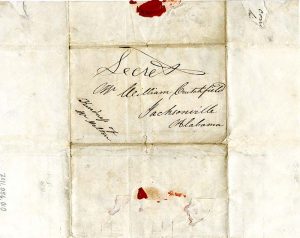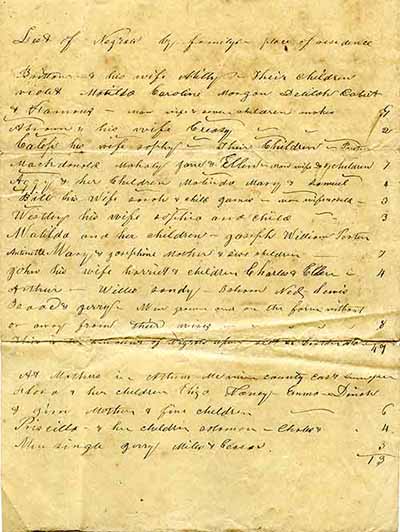This blog post was authored by Riley Grisham, an intern in the Library’s Special Collections unit from the UTC Department of English in Spring 2020.

I chose to intern with UTC Special Collections because it seemed like a meeting point of sorts between my two fields of study: English and Art History. Initially, I thought I would only be able to pursue one of these fields in graduate school, but librarianship offers an outlet in which my experience in writing, research, and historical knowledge can culminate. That said, I had only a vague idea of what librarianship and archival work actually entailed, and wanted to have real, working experience in the field before considering graduate schools or future careers. I entered into my internship with the goal to gain an understanding of the processes involved in archival work and the hope that I could successfully apply that understanding not only to my project, but to decisions about my academic future, as well.
The project I chose to focus on was metadata writing and finding aid creation for the Thomas Crutchfield papers, a collection of letters, notes, receipts, and other documents belonging to the Crutchfield family. The Crutchfields were a prominent family in early Chattanooga: two of the subjects of the collection (Thomas Crutchfield, Sr. and Thomas Crutchfield, Jr.) served as mayor of the city, as well as building the Crutchfield House Hotel (now known as the Read House Hotel). The Crutchfields were also slaveholders, and several of the documents in this collection contain information that sheds light on the slaveholding practices that existed in Antebellum Chattanooga. Documenting this history and making it easily accessible to the public and to researchers has become very important to me.

Working with the actual letters was, perhaps, the most interesting part of the entire process for me. Most of the letters are dated within the late 1840s, meaning that they are around 170 years old—reading, titling, and describing each of them allowed me to gain a pretty significant perspective regarding the way we communicated at that time. Sometimes the letters were silly family exchanges, sometimes long-winded political discussions. One letter features a splatter of ink and the thumbprint of the author, who must have spilled his ink in the process of writing. Several of the letters were extremely sombering to read: discussions about the lease of a slave or notice that a slave was being sent with packages are peppered throughout this collection. One document in this collection is a list of the slaves owned by Thomas Crutchfield at his two properties. These documents are, obviously, troubling, and while I didn’t enjoy working with them, preserving this aspect of Chattanooga’s history is vitally important because it allows us to remember our failings and ensure it does not happen again.
Watching as my work slowly came together was immensely rewarding. Thanks to the guidance of the incredible Special Collections staff, I was feeling quite confident about what I had achieved by the time Spring Break rolled around in March—and, then, abruptly, due to the COVID-19 pandemic, UTC’s campus was closed, meaning Special Collections was closed along with it. Thankfully, a significant amount of my work can be done remotely, so I was able to hammer out a new plan for moving forward with my supervisor and resume my project. Some aspects of my work, like the ability to pull the physical objects from the stacks and analyze them in-person, were no longer possible. Nevertheless, I still feel incredibly lucky to still be able to contribute in this way. Transitioning to a work-from-home setup has been the most difficult challenge of this internship so far, but it is one that almost everyone else I know—including some of my coworkers—is going through as well.
Currently, I am in the final stages of my internship. I achieved metadata completion just last week, which was an exciting milestone to hit. I can confidently say that I’ve learned a great deal: I now have experience using controlled vocabularies, writing historical and biographical notes, and creating finding aids in ArchivesSpace. I understand a great deal more about the process of making collections accessible in an organized, concise manner. This experience has allowed me to turn my passion for history, art, and writing into an actual skill set. After graduation, I plan to pursue further education in Library Science and Art History.